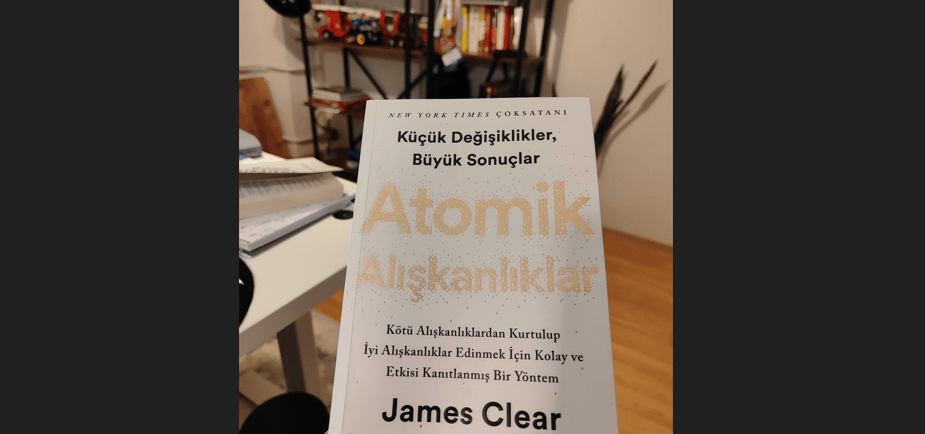Atomic Habits
written by James Clear
2/14/20243 min read


Here I'd like to share my thoughts on the Turkish translation of "Atomic Habits", and my key takeaways.
First of all I reread the translated version and I do recommend it!
You can click here to order this great book!
My key takeaways
Small changes in our daily habits can lead our lives to completely different destinations. Success is not the product of one-time transformations in life, but of daily habits.
Completing one extra task is a small thing, but it can make a big difference in an entire career.
Every book you read not only teaches you something new, but also opens up new ways of thinking about old ideas.
Being a little kinder in every interaction can earn you a wide and strong network of connections over time.
Bamboo grows unseen for the first five years, building a large root system underground, before reaching a height of twenty-seven meters in six weeks.
If you want better results, forget about setting goals and focus on your system instead.
Personal example: I will read at least 30 pages about product management every day.The goal is not bad, but the system is more important.
Personal example: I will read at least 30 pages about product management every day. And for every 2 product management books I finish, I can buy a Lego set.
Problem: Goals limit your happiness.
The underlying assumption behind every goal is: "I will be happy when I reach my goal." The problem with the goal-oriented mindset is that you keep postponing happiness until the next milestone.
Personal example: I will read at least 30 pages about product management every day. And for every 2 product management books I finish, I can buy a Lego set and play with the Legos I build :)
If you are proud of the scarves you knit, you are much more likely to make time for knitting every week. When pride is involved, you will put in the effort to maintain your habits.
When I started my writing career, I published a new article every Monday and Thursday for the first few years. As the evidence grew, so did my identity as a writer. I didn't start out as a writer. I became a writer through my habits.
How to gain a good habit:
Make it visible
Make it attractive
Make it easy
Make it satisfying
How to break a bad habit:
Make it invisible
Make it repulsive
Make it difficult
Make it unsatisfying
If you are struggling to classify a particular habit, try asking yourself the following question: "Does this behavior help me become the person I want to be? Does this habit vote in favor of or against the identity I desire?"
I will do this behavior at this time and place.
Personal example:
I will listen to podcasts between 11am and 12am every workday.
I will attend the Harvard Software course between 1pm and 2pm every workday.
Wish
I would like to use my HP Victus only for playing computer games and the work computer provided by the company for work once a new company provides me one.
It is easy to build new habits in new environments because you don't have to fight old cues.
Habit building method:
I will do the desired habit after the habit I need. The brain will release dopamine anyway and I will have gained a new habit in the process.
Or if it does not work. Sometimes the resistance is high. Then do the habit that motivates you and do the new habit right after it!
Personal example: After reading 30 pages of a book, I will play Age of Empires.
Never skip the habit twice.
It's easy to exercise when you feel good. The point is to be someone who doesn't miss their workouts. It's important to be there, even when you don't feel like it, even if you do less than you hoped. Bad workouts are often the most important ones in habit formation.
Truly successful people also experience a lack of motivation, just like everyone else. The difference is that successful people keep going despite the feeling of boredom.
Dont hesitate the ask "Does this behavior help me become the person I want to be?"
